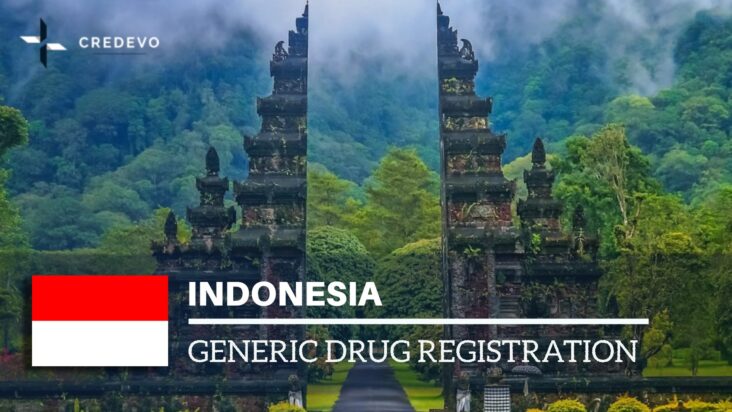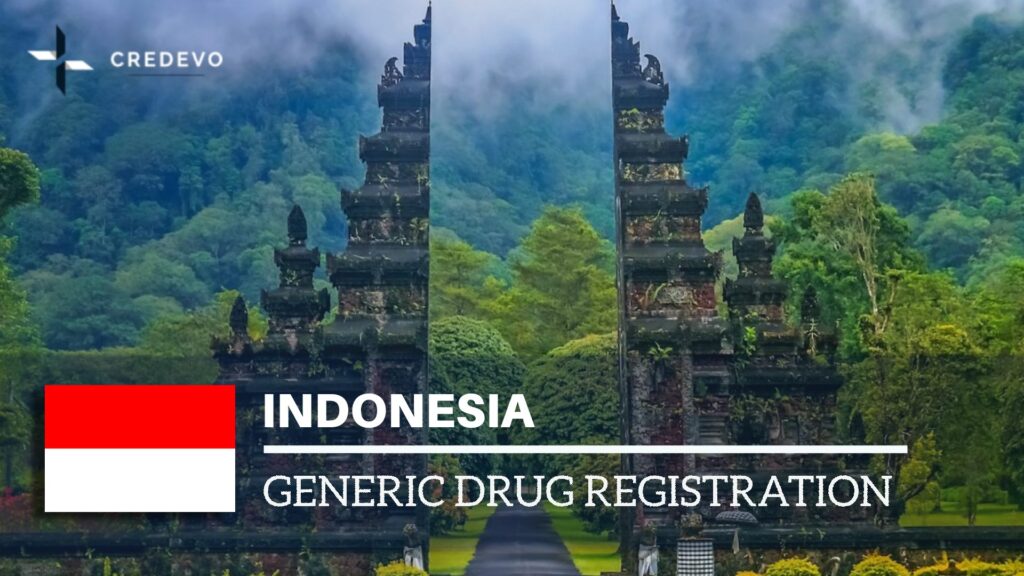Indonesia Generic Drug Registration

Indonesia’s pharmaceutical market is the largest market in the Association of Southeast Nations (ASEAN). The current pharmaceutical market is worth IDR 84 trillion (USD 6 billion) and is expected to reach $10.11 billion by 2021.

Some interesting facts about Indonesia
- The Indonesian Pharmacists Association reported that about 95 percent of raw material for medicine is imported from other countries.
- Foreign ownership of pharmaceutical firms has increased from 75 to 100 percent over years.
- Indonesia is home to more than 30,000 medicinal plants out of the 40,000 globally known medicinal plants.
Historically, Indonesia has had one of the lowest rates of drug consumption in Asia. But now things have been changed. Growing chronic diseases and the growing spending power of the middle class are some of the crucial factors that contributed to the growth of demand and growth for drugs. Some other factors are given below.
Some of the key factors for the growth of the Indonesia market include
- Growing life expectancy and increased government healthcare spending,
- Introduction of 15 economic policy packages to attract foreign investors,
- Implementation of the Universal Health Coverage scheme, and
- Growing urban population.
Generic drug
A generic drug is defined as a copy of an ethical (prescription) drug formerly protected by patents that have now expired. Both unbranded generics and all branded generics are included. However, off-patent drugs that continue to be offered by the original manufacturer under the original name, and which form part of the ‘generic eligible market, are not included.
Type of generic drug products in Indonesia
The generic drugs in Indonesia are classified into two groups
- Unbranded Generics
- Branded Generics
Regulatory authority
The National Agency of Drug and Food Control (NA-DFC) is the regulatory authority responsible for ensuring the safety, quality, and efficacy of pharmaceuticals in Indonesia.
The NA-DFC handles the drug registration application review process and grants drug approvals in the form of a marketing authorization license.
Need support for your drug registration in Indonesia?
Credevo offers expertise in drug product registration, clinical trial regulations, and many more services in Indonesia. Check them out now!
Regulatory procedure
The National Agency of Drug and Food Control (NA-DFC), Republic of Indonesia, oversees the generic drug registration process in Indonesia.
There are two steps to be followed for registration of generic drug products (unbranded & branded)
Pre-Registration
- Determination of the registration category and evaluation path/timeline
- Consultation on completeness of registration dossier/document
- Registration fee
Submission of registration dossier
Submit registration dossier according to the registration category completed with bank receipt of the registration fee.
Application pre-requisites
- Completion of registration forms should be in Indonesian or in English.
- Registration documents can be in Indonesian or in English.
- Labeling of over-the-counter drugs/limited over-the-counter drugs must be in Indonesian.
- Labeling of drugs for export only should at least be in English.
The head of the NA-DFC is responsible for issuing the marketing authorization approval/non-approval decision. In some cases, the NA-DFC may request additional data in order to determine the product approval/non-approval.
In this situation, the applicant will have 120 days to submit this requested information. If the applicant is unable to provide the data within the given timeframe, the application will be rejected. However, the applicant has the option of resubmitting the dossier as a new Indonesia drug registration application.
Requirements on Bioavailability (BA) / Bioequivalence (BE) studies
Bioavailability Studies
- For modified-release products, dosage recommendations and regime must be supported by bioavailability studies.
- Studies comparing availability or establishing equivalence of similar products would be required.
Bioequivalence Studies
- Bioequivalence study must be performed for immediate release dosage forms having systemic action.
- The Bioequivalence study must be performed in an independent Bioequivalence laboratory, fulfill GLP and ICH-GCP aspects, must be accredited with ISO 17025:2005/2008 from National Accreditation
- When the drug meets some conditions, these studies can be waived.
Requirements for Manufacturing Site
- A medicine produced in Indonesia must be registered by the relevant pharmaceutical producer (which must also hold an industrial business license issued by the Ministry of Health (MOH)).
- Compliance to Good Manufacturing Practice (GMP) is a prerequisite to the application of generic product registration.
Requirements for Foreign Manufacturers
- Pharmaceutical Industries in Indonesia having written authorization from the manufacturer abroad) are allowed to import drugs.
- An imported medicine must be registered by a domestic pharmaceutical product that has obtained a written appointment from the relevant foreign pharmaceutical producer.
- This written appointment is not needed if the domestic pharmaceutical producer is affiliated with the foreign pharmaceutical producer.
Fees for generic applications
A non-tax state revenue (pendapatan negara bukan pajak) applies with amounts ranging from IDR100,000 to IDR30 million per medicine.
Timelines of generic applications
It takes 100 working days with electronic standardized information for generic products with the same quality as branded generic drugs that have been marketed.
It takes 150 working days for drugs that have been marketed in countries which have implemented harmonized evaluation system, for new indications which have been marketed in the countries that have implemented harmonized evaluation system and generic drugs without electronic standardized system.
The post-approval – Distribution process
- All medicines that will be distributed in Indonesia must be registered with the Food and Medicine Supervisory Board (Badan Pengawas Obat dan Makanan) (BPOM).
- The BPOM will issue a distribution license (in cedar) for the registered medicines on registration.
- BPOM is also authorized to oversee the distribution of medicines in Indonesia and impose sanctions for violations committed by holders of a distribution license.
- Any company that wishes to manufacture, import, and/or wholesale any registered products needs to have a valid product registration and a distribution license.
Do you need support or have queries on drug registration requirements?
Credevo offers a wide range of drug development and regulatory services in Indonesia. Choose one of the following options to connect with us.
Get the report on the generic drug registration process in Indonesia.
Note: This report will be charged @ $359.
Do you have a query? Just ask experts at Credevo.
Note: “Ask Credevo Expert” will be charged @ $50 / inquiry. Any inquiry requiring more than 30 min of expert’s time will incur additional charges.
Looking for a quotation? Just provide relevant info and we will send you the details.